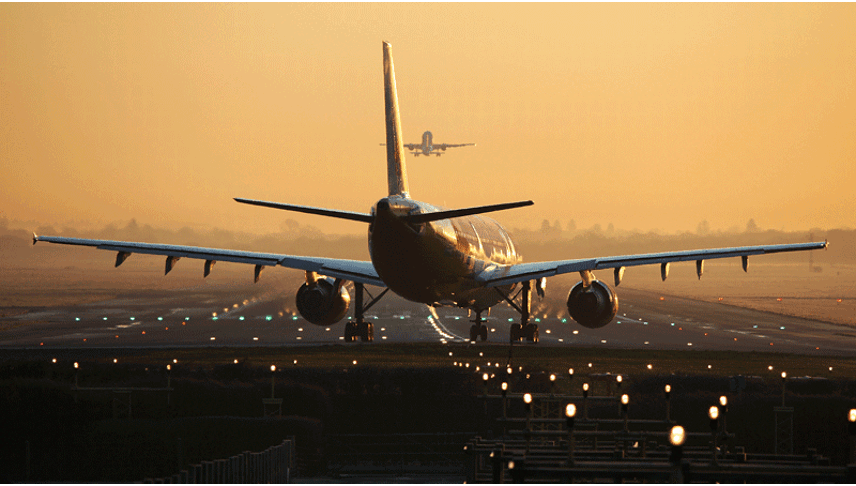Register for free and continue reading
Join our growing army of changemakers and get unlimited access to our premium content

Ministers at the Department, along with senior representatives for the aviation sector, have this week published an action plan setting out priority actions to be taken under the Jet-Zero Strategy in 2023 and 2024.
A final version of the Jet-Zero Strategy was published last summer, headlined by a 2040 net-zero goal for airport operations and domestic flights, and a 2050 goal for international flights. Today’s publication sets out some of the first steps towards delivering these long-term targets.
Scaling up the supply of alternative fuels (SAFs) and ensuring that aircraft are equipped to use them in ever-increasing blend proportions is a cornerstone of the Strategy. Today’s plan confirms that a new Low-Carbon Fuels Strategy should be published between September and December 2023, including the SAF mandate.
At present, the Government has proposed a mandate that would require at least 10% of jet fuels to be made using more sustainable feedstocks by 2030. Meeting this will require the production of 1.5 billion litres of SAFs each year.
Full details of the SAF mandate should be published in the first quarter of 2024 and it should be enshrined in law by the end of 2024.
The Low-Carbon Fuels Strategy should also include more detail on what, exactly, counts as a sustainable or low-carbon fuel, and how the UK will scale its supply chain for these fuels. The DfT had already set a mission for at least five commercial-scale SAF plants to be under construction by 2025, and this will further flesh out the plans.
Additionally covered in the Strategy will be measures to bring down the cost of SAFs. Having an economy of scale will partly close the price gap between SAFs and kerosene, but the Government will explore mechanisms to accelerate the sector’s growth.
A new independent evaluation of the UK’s SAF value chain, authored by Philip New and published this week, does warn that producers are presently seeing the EU and US as more cost-effective markets in which to build plants. Airlines and airports have previously warned that, without further policy support, British SAF projects would only be able to produce around half the levels of fuel required to meet the mandate.
Beyond fuels
The Government has repeatedly stated that, while it does see electric and hydrogen-powered aircraft playing a role in transitioning aviation to net-zero, this role may be smaller and the technologies will take years yet to mature.
Today’s delivery plan states that the Government will define a certification programme for hydrogen-powered, large commercial aircraft in 2024. It will also assess other regulation priorities at the same time.
2024 will also see the Aerospace Technology Institute piloting hydrogen storage and transportation projects.
Towards the end of 2024, the DfT will review airport infrastructure R&D and assess the need for any additional work. This covers not only getting airports ready for SAFs, hydrogen and electric planes, but electrifying operations and equipment and making them more energy efficient.
“This government is a determined partner to the aviation industry – helping accelerate new technology and fuels, modernise their operations, and work internationally to remove barriers to progress,” said Transport Secretary Mark Harper.
“Together, we can set aviation up for success, continue harnessing its huge social and economic benefits, and ensure it remains a core part of the UK’s sustainable economic future.”
Ongoing climate controversy
While the aviation sector may be happy with the Jet-Zero Strategy, many environmental groups are not.
The Government has shunned the Climate Change Committee’s (CCC) recommendation for a cap on airport expansion in favour of SAFs and other technologies, despite warnings that they may not scale up as planned, or may not deliver the expected emissions benefits.
Recent research from The Royal Society cast doubts on the practicalities of scaling SAFs and concluded that there is ”no single simple answer to decarbonising aviation” aside from reducing the amount of travel or using carbon offsetting.
For its over-reliance on SAFs in the Jet-Zero Strategy, the DfT is currently facing legal action from climate charity Possible and the Group for Action on Leeds Bradford Airport. These groups claim that the Government has not transparently set out how the strategy would deliver decarbonisation in line with legally binding carbon budgets. A joint hearing will be held later this year at the High Court.
“Until there is a credible pathway to decarbonizing the aviation sector, it is a massive gamble for the government to allow the unchecked growth of the sector without any attempt at managing demand,” they said in a statement.
Heathrow Airport’s director of sustainability Matthew Gorman told the BBC this week that decarbonising air travel will likely push up ticket cost, “inevitably” reducing passenger demand without the need for policy interventions. Groups like Possible are arguing that the cost should be paid by the wealthy through a frequent flier levy.


All policy should be aimed at how the UK can lead, or at least influence the rest of the world. We only produce 1% of global total emissions. Action in isolation is at best irrelevant, at worst sanctimonious self-flagellation. How does the Jet-Zero Strategy effect reductions worldwide?